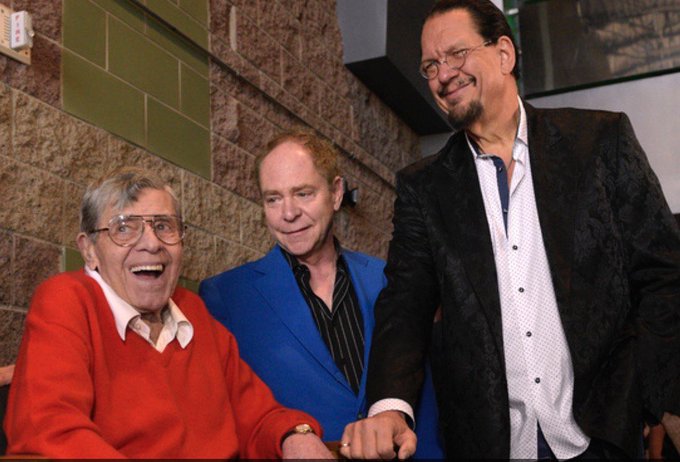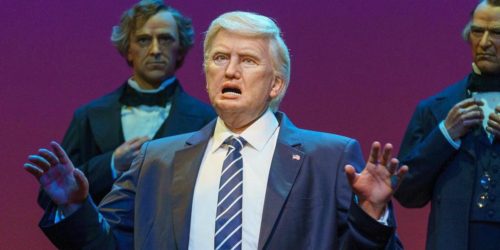HuffPost
“Shut That Crap Off!”: Why Awards Show Acceptance Speeches Suck . . . and Some Ideas for the Tony Awards
By Kevin Winkler, Contributor
07/10/2017 06:59 pm ET\
This year’s Tony Awards broadcast marked an anniversary that no one noticed. It was 50 years ago that the awards were first broadcast nationally. Take 63 minutes and watch it on YouTube. That’s right: in just over an hour all the 1967 awards were presented on camera and musical numbers in their entirety from the four shows nominated for Best Musical were performed.
Of course, many things have changed in fifty years. There were far fewer awards to hand out than today. And back then only about 6-8 of those 63 minutes were devoted to commercials. Today an hour of broadcast time carries as much as 20 minutes of commercials. But the biggest difference is that the acceptance speeches were generally no longer than the 140 characters in a tweet. It would have been considered in bad taste to air political views or religious beliefs, discuss personal issues, or thank endless lists of friends, family, and coworkers. There was warmth and good humor on display, as well as modesty and personal reticence.
In accepting her award for Best Actress in a Musical for the revival of Hello, Dolly!, Bette Midler managed to both expose and embody the inconsistency, willfulness, and wackiness of award acceptance speeches in 2017. As the music rose ever louder to encourage her to wrap it up, she barreled through, at one point demanding that the orchestra “shut that crap off!” After a full five minutes of talk, her final comments were thoughtful, as when she reflected on what it means to revive a work that has never really gone away, and gracious in acknowledging the many Dollys that came before her. But to get to that point, Midler did what every other award winner feels compelled to do: she ran through a laundry list of thank yous to collaborators, many by their first names. Of course, this being Midler, it was delivered with dry wit and crackling comic timing (“Natasha, marry me please!” she exclaimed to lighting designer Natasha Katz for making her look 30 years younger.) Her big-hearted praise for her colleagues was touching, and the speech was the high point of a long, uneven broadcast. But in defying the contemporary conventions of awards show acceptance speeches, Midler was the exception that does not prove the rule. Today, viewers are just as likely to breathe a sigh of relief when the music cranks up to drown out the endless thank-you list that most winners recite.
How did we get from brief thanks (like Midler’s first Tony acceptance speech in 1974) to an eternal recitation of names 99.99% of viewers at home or in the live audience don’t know?
There have always been awards recipients who go on too long. Greer Garson legendarily talked a blue streak when she won her Oscar for Mrs. Miniver back in 1943. But a creeping talkativeness became noticeable around the time CBS began to impose time constraints on the Tony broadcasts that it and other networks didn’t for other awards shows. The Tonys, never a ratings juggernaut, were forced into a two-hours-only slot in 1992, meaning that local affiliates could cut off the awards at 11:00 PM and go to the local news. That year’s telecast was a breathless race to the finish, stopped dead in its tracks by a few very long-winded winners. The next year host Liza Minnelli introduced a new timesaving feature. When winners went over their allotted time (about a minute), the orchestra fired up the musical hook (often cheekily, “There’s No Business Like Show Business”), at first gently and then, if the winner continuing talking, ever louder until they got the message. Part of me was horrified at the tackiness of this new “bum’s rush in melody,” to quote the 1939 film version of The Women. But another party of me was kind of relieved by it.
Acceptance speeches had become increasingly self-indulgent. Some of it is what I call the “Oprah influence,” with people encouraged to share (or over-share) the personal “journey” in which they overcame obstacles to arrive at this stage and this award. Others stressed their religiosity or offered political commentary. (As a gay, liberal, New Yorker, I generally agree with the political viewpoints espoused at the Tonys. Would I think, “Not at MY Tony Awards!” if someone shared conservative political and religious views?) Increasingly, the award has been treated not as a prize for a particular effort, but a lifetime achievement award for which multitudes must be thanked. Thus the appearance of the ubiquitous little white pieces of paper—crib sheets for winners. Now with the musical clock ticking, speeches have become not much more than urgent, rushed name checks. (An emerging trend is reading this laundry list from a phone. At least it’s environmentally responsible.) With rare exceptions, the acceptance speech has joined the commercial as the perfect opportunity to get a refill from the kitchen.
The difference between the old days and the new normal can be seen in Zoe Caldwell’s contrasting Best Actress acceptance speeches for Medea in 1982 and Master Class in 1996. In 1982 she’s relaxed and confident, and spends about a minute extemporaneously thanking various parties (including Euripides).
By 1996, she’s a nervous wreck, her nose stuck in a piece of paper as she dashes through an endless list of names. There’s not a moment of exuberance or exultation at her win for her great performance, merely beat-the-clock relief that she got through it. (To be fair, she only got about 40 seconds before the music piped in.)
The allotted time for speeches has grown a bit longer over the years, but the musical hook isn’t applied consistently. Actors seem to get more leeway than others in talking on and on. And stars like Bette Midler and Julia Roberts (who also quieted the orchestra so she could speak for nearly 5 minutes when she won her Oscar for Erin Brockovich in 2001) are indulged even further.
It’s hard to stand in front of a large audience (including those watching at home) and speak lucidly—not to mention with charm, wit, or humor—while a stopwatch is ticking, but many do. This year, Gavin Creel was charm personified in accepting his award for Best Featured Actor in a Musical for Hello, Dolly!, thanking his alma mater and urging the one-per centers in the audience to support the arts by establishing scholarships for young artists—all in under a minute.
Cynthia Nixon, the winner of Best Featured Actress in a Play for The Little Foxes, artfully introduced politics by quoting from Lillian Hellman’s play about those who eat the earth and those who watch—a subtle rebuke to our current president and his party.
So how do you solve a problem like the acceptance speech? I don’t have any definitive answers, but here are a couple of ideas that would make the Tony Awards broadcast more entertaining and less dependent on speeches.
· More musical numbers. The Tonys should take a page from the Grammy Awards, where only a fraction of the awards are presented on camera, and turn the broadcast into a real tribute to Broadway. Bandstand didn’t get much love from the Tonys, but its dance number was one of the broadcast’s livelier moments and probably sold some tickets. Put numbers on from all the currently running musicals, and showcase new stars in older shows.
OK, so this year’s opening with Kevin Spacey wasn’t great. But some recent opening numbers have been spectacular examples of Broadway writing and staging—much better than anything seen on the Oscars or Emmys. Do more of these numbers and showcase the great stars of today’s Broadway like Kristen Chenoweth, Audra McDonald, Lin-Manuel Miranda, Laura Benanti, Jesse Mueller, Christian Borle, and others.
Celebrate long-run milestones, like Chicago’s new record as longest running American musical in Broadway history. Special Tonys to Harold Prince and Tommy Tune in recent years would have been grand opportunities for extended musical numbers from their greatest hits. Next year is the 20th anniversary of The Lion King’s Tony win for Best Musical. It would be a great time to revisit it on the broadcast. And for God’s sake, set aside a block of time to showcase plays!!
· Fewer on-camera awards. The design awards have long since been relegated to off-camera, and these days even awards for book, choreography, and orchestrations are done during the commercials. Do we need the director awards given on camera? Or all of the actor awards? Definitely move the Best Revival awards to off-camera. This would eliminate two instances of endless armies of producers and backers tromping on stage, hugging and whooping like the cool kids at assembly.
· But show more love for designers. When Rosie O’Donnell commandeered the broadcast for several years starting in 1997, she helped restore the running time to three hours and made sure the designers were represented with pre-taped segments featuring their work. Bring this feature back. Who cares about on air speeches when we can see first-hand their artistry?
· Hey, Mr. (and Ms.) Producer! Be Quiet. Let the writers accept the awards for Best Musical and Best Play. They’re always more eloquent than producers and they know the material better than anyone. Since Steven Levenson didn’t get to accept his award for Best Book for Dear Evan Hanson on camera, it would have been great to see him speak about his work in this context.
· Use Social media more effectively. After she won her award, Bette Midler kept talking for another 11 minutes backstage in the press room. And she was truly eloquent, discussing the craftspeople of Broadway, the theater’s contribution to the economies of New York City and the United States, and much more. She was relaxed and funny and moving. The whole thing is now up on YouTube, along with other clips of winners speaking to the press. These are more interesting than rushed acceptance speeches. Promote these clips as valued added content to the broadcast, maybe with a montage of the best moments, and run them over the end credits.
And here’s to brevity!








Everyone has an opinion. Gone are the days that if you should reserve your opinion for the appropriate time. Now everyone. Lifts out their opinion and has little regard for the next guys. So who wins? Bette misled…YAAAY